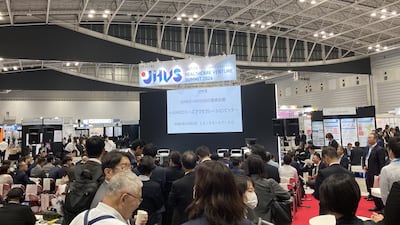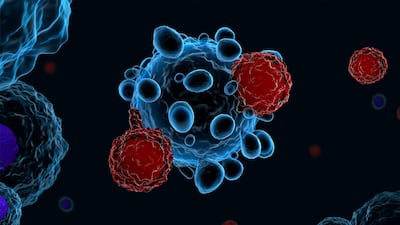Cell Therapies

Aucatzyl will look to take market share from Gilead’s Tecartus, and the US approval is a boost for the firm and the wider UK biotech sector.

The drug maker said in its third quarter earnings report that competition from other therapeutic classes, particularly bispecifics, resulted in a slight decline of sales for the CAR-T.

The otherwise encouraging data were marred by one patient death, but the company attributed it to the busulfan conditioning regimen and not BEAM-101.

Lyell believes ImmPACT’s dual CD19/20-targeted CAR-T could offer better response rates than Yescarta or Breyanzi and will focus on IMPT-314 while terminating much of its own pipeline.

Multiple Japanese ventures presented updates on their novel pipeline assets and modalities at BioJapan, including cell and gene therapies and combination treatments, despite lingering financing challenges.

ARM’s Cell and Gene Meeting on the Mesa offered optimism that a biopharma financial market recovery is under way, but cell and gene therapies still are seen as risky investments.

Emerging Company Profile: The Maryland-based biotech is working on a functional cure for type 1 diabetes that is similar to Vertex’s VX-880 – but with some key differences.

Big pharma executives at ARM’s Cell and Gene Meeting on the Mesa shared some of the practical challenges of bringing one-time treatments to market in hemophilia, cancer and beyond.

With more advanced therapies gaining approval, companies at ARM’s Cell and Gene Meeting on the Mesa considered hurdles to making their products more broadly available and developing them for larger indications.

In a video interview with Scrip, Syed Husain, CEO of the US-based cell therapy CDMO BioCentriq, talks about the company’s role in parent GC’s growth strategy and business priorities, the cell and gene therapy manufacturing market and his views on the US BIOSECURE Act.

In this week's podcast edition of Five Must-Know Things: summer ADC dealmaking continues apace; a look at cell therapies in Japan; Pfizer’s new US digital consumer platform; Galapagos’s US point of care CAR-T study; and Novartis partners with Lindy on biologics delivery.

After 10 years of promised investment following its Nobel Prize for iPS cell research, Japan is cautiously narrowing regulations around the conditional approval of cell therapies and cutting some reimbursement prices. Commercial success remains mixed and some products have been withdrawn from the market.

Despite initial promise, a novel autologous cell transplant therapy for severe heart failure has faced multiple challenges in gaining full approval in Japan, potentially providing learnings for other developers of regenerative medicines.

In this week's podcast edition of Five Must-Know Things: global CEO remuneration; another late-stage loss for Merch KgaA; deals shift to smaller M&A, partnering; Bayer’s Parkinson’s bets bear fruit; and India looks to innovate CAR-T models.

The German major is kicking off Phase II trials for a cell therapy and a gene therapy that could be gamechangers for the progressive neurodegenerative disorder that affects more than 10 million people worldwide.

SanBio’s lead cell therapy asset has been on a bumpy journey to its global-first approval and while a nod has now come in Japan in a high-need indication, a commercial launch is conditional on additional data to establish product equivalence and manufacturing consistency.

UK-based Ochre Bio has signed its first major deal with Boehringer Ingelheim. Scrip talked to its co-founder and CEO, Jack O’Meara, about its human tissue-based drug discovery platform, its resulting RNA platform for liver disease and how the fledgling drug company's early work mirrored that seen in diagnostics.

As drug pricing continues its ascent among hot button issues, the multi-million-dollar price tags for one-and-done advanced therapies, their justification and reimbursement all remain unaligned.

More than 75 industry executives and experts gazed into the crystal ball and shared with Scrip their predictions around transformative technologies. Perhaps unsurprisingly, AI was the dominant theme – but gene editing, cell therapies and new targeting modalities were also among the highlights.

2023 saw a number of gene therapy companies go to the wall, but those that can combine clinical significance and commercial success can build sustainable businesses.